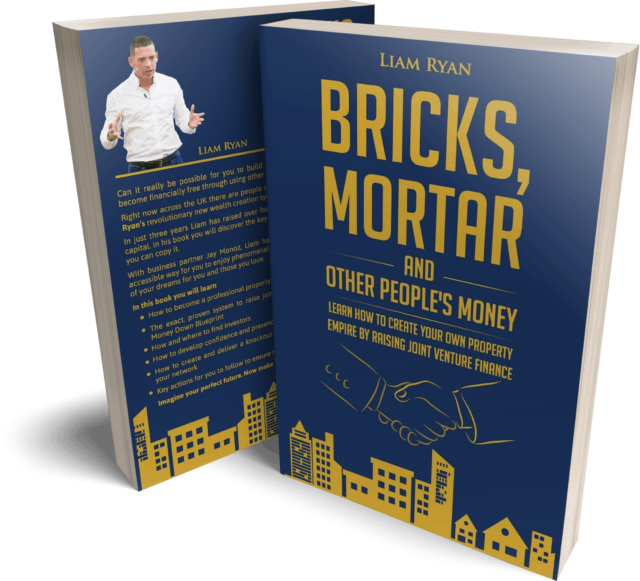Landlord Insurance: Do I Need It And What Does It Cover?

If you are renting out a property to tenants, you need to know about landlord insurance. In this blog, I will discuss what landlord insurance is, what types of landlord insurance are available, and what it covers, and other vital information for landlords and property investors.
Table of Contents
ToggleWhat Is Landlord Insurance?
Landlord insurance covers landlords from any risks associated with their rental property. Like many other kinds of insurance, it covers you in the event of damage and loss of earnings relating to your rental properties. Hopefully, you won’t ever have to use it, but landlord insurance can be an important safety net that can protect you from losses.
Why Do Landlords Need Insurance in 2024?
Landlords need insurance to cover them in the following 5 situations:
- Due to unforeseen circumstances or damage to the property, tenants have to move out, resulting in a loss of earnings from rent
- The contents of your rental property get damaged outside of usual wear and tear
- The property itself gets damaged outside of usual wear and tear or regular maintenance work, e.g. due to fire, flood, accidents, etc. and requires repairs
- If a tenant gets injured while in the property, they may file for a personal injury claim
- The tenants may default on rent payments, leaving you out of pocket and needing legal fees in order to take a tenant to court over unpaid rent.
There are plenty of other situations that are covered by landlord insurance – always see your individual insurance policy for more details on the exact scenarios it will cover.
Do I need landlord insurance for a flat?
Renting out a flat can incur the same costs and financial risks as renting out a house or other kind of property, so I would definitely recommend taking out landlord’s insurance on a flat.
Do I need landlord insurance and homeowner’s insurance?
No – homeowner’s insurance is taken out by property owners who live in the property. Landlord insurance will cover contents and the building itself just like homeowner’s insurance would so you don’t need to have both.
Is It Illegal To Not Have Landlord Insurance?
No, it is not illegal not to have landlord insurance, unless you are renting out an HMO (House in Multiple Occupancy). However, as with other forms of insurance, landlord insurance is strongly recommended. Not having insurance can expose you to great financial risk, even if it is cheaper to go without. Some mortgage lenders will require you to have landlord insurance as a prerequisite to lending you money to purchase a rental property.
Landlords renting out HMOs will need specialist landlord insurance that differs from regular building and content insurance or other forms of insurance. HMO insurance accounts for the higher risks incurred by an HMO such as more people coming and going and occupying the property, leading to a greater chance of damage, or the possibility of someone claiming against you for loss, damage or injury incurred on your HMO property.
Different Types Of Landlord Insurance
There is a range of different types of landlord insurance available depending on your needs – some landlord insurance will cover a variety of situations. Please check before purchasing landlord insurance to find out exactly what it will cover and make sure this is sufficient for your needs.
Landlord’s Contents Insurance
This provides cover for white goods, furniture, and furnishings that you have included in the property for your tenants to use. This covers these items in the event of theft, or damage by fire, flooding or other events that could damage furniture and other items. Landlord’s contents insurance is ideal for landlords who offer furnished or semi-furnished properties for rent.
Property Owners’ Liability Insurance
This kind of insurance is often overlooked but can be essential. Property owner’s liability insurance covers you in the event of injuries to third parties or damage to their property. If a tenant or someone else visited your property, i.e. not yourself, and got injured by the property somehow, you could be liable. Also, consider the event of someone passing by your property and a roof tile falling onto them – the property owner’s liability insurance would cover this type of occurrence. Of course, it is best to ensure the property is safe and well-maintained before any tenants move in, and all maintenance tasks are carried out promptly to avoid this kind of situation.
Buildings Insurance
This is for covering the costs of any repairs required to the property, in the event of any damage. Damage to the property caused by bad weather, fire, flooding, frozen or burst pipes, vehicle collision, vandalism or theft could all be covered by building insurance. If this was a property you lived in, this type of damage would be covered by homeowner’s insurance. Buildings insurance does not cover regular wear and tear, damage caused by poor maintenance, pets that live at the property, or smaller jobs that should be done in the general course of property maintenance.
Accidental Damage Insurance
This kind of insurance covers accidental damage, such as a tenant spilling something on a carpet and staining it, breaking a window while moving furniture, or dropping something heavy and cracking a floor tile or sink. Accidents do happen and can be quite expensive to fix so this kind of insurance could be very handy. Bear in mind this does not cover general wear and tear or purposeful damage, i.e. vandalism.
Rent Guarantee Insurance
This insurance can protect you if a tenant defaults on their rental payments, i.e. stops paying rent. You may rely on the income that your tenant’s rent provides, or use it to pay the mortgage on the property, so having rent guarantee insurance can help to make sure you aren’t left out of pocket.
Legal Expense Insurance
Legal expense insurance can cover your legal costs should you need to take a tenant to court for not paying rent or take legal possession of the property. Ideally, this is a situation you will never be in, but it does happen, and legal fees can be very costly indeed, so having this insurance can give you some peace of mind and save you from potential expenses.
Many insurance companies who provide landlord insurance will offer all of these as part of a comprehensive package – just make sure to do some research into different insurance providers, find out exactly what they cover, and always read the fine print before signing to make sure that the policy is right for you.
Every property owner and landlord will have different needs, so take the time to find out what kind of insurance is right for you. If you own and rent out multiple properties, you can often get insurance that covers all of your properties together.
Interested in investing in property? Why not join me, Liam J Ryan, at one of Assets For Life’s FREE property events – find out more by clicking below.
You May Also Be Interested In...

A Guide to Selling Your Buy-To-Let Property
Thinking of selling your buy-to-let? Learn how to time the market, manage tax and maximise

Planning Permission Loopholes You Should Know About
Discover UK planning permission loopholes, permitted development rights and when you can extend, convert or
Featured Property Investment Events & Courses
The Property Deal Packaging Summit
The Property Millionaire Bootcamp
The Serviced Accommodation Bootcamp






